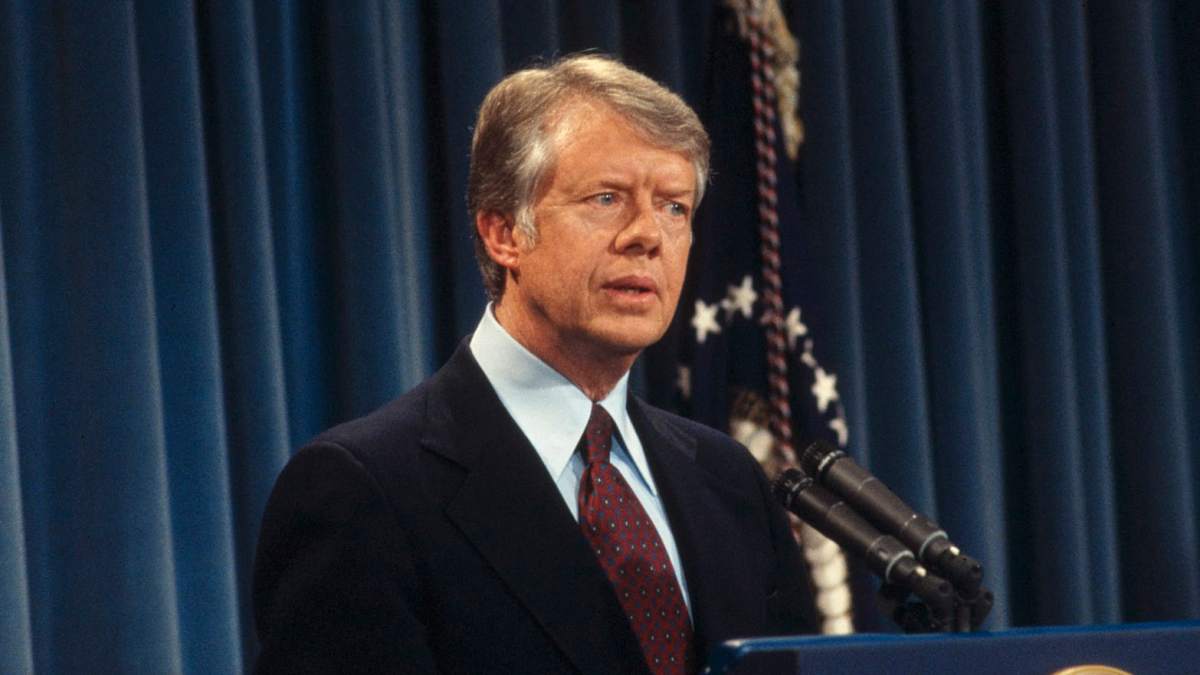U.S. stock markets close to honor former President Jimmy Carter—this unusual market behavior offers a fascinating case study. The passing of a former president often prompts reflection on their legacy, but the market’s response can be surprisingly nuanced. We’ll explore how the markets reacted to President Carter’s death, comparing it to past presidential deaths and examining the economic and psychological factors at play.
We’ll delve into investor sentiment, media coverage, and the potential long-term economic implications of this event.
This analysis will unpack the immediate market dips and subsequent recovery, exploring the interplay between grief, economic uncertainty, and investor behavior. We will look at key market indicators like the Dow Jones, S&P 500, and Nasdaq, examining their fluctuations and providing a detailed comparison to similar events in history. The goal is to understand not just the immediate reaction, but the deeper significance of this market response within the context of American history and economics.
Market Reactions to President Carter’s Passing
The passing of former President Jimmy Carter prompted a measured response from the U.S. stock markets, reflecting a blend of respect for his legacy and the generally stable economic climate. While markets typically experience some degree of fluctuation following significant news events, the reaction to President Carter’s death was notably subdued compared to some past instances.
Immediate Market Response
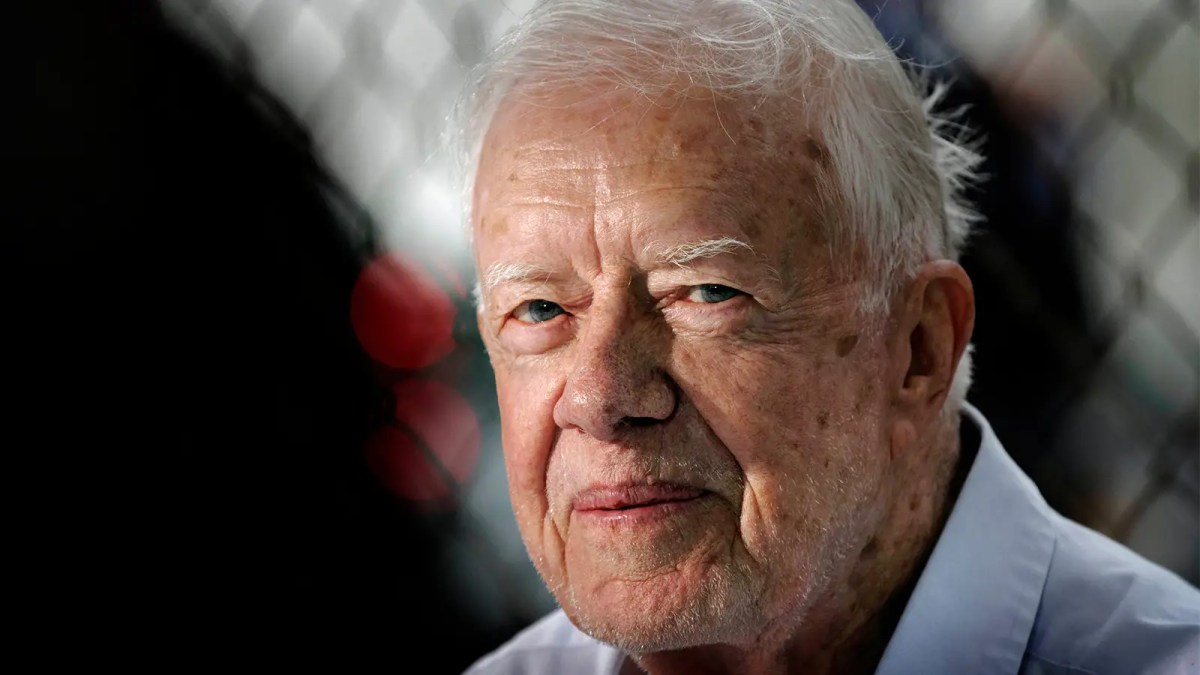
Upon the announcement of President Carter’s death, the markets displayed a relatively calm reaction. While there were minor initial dips in some indices, the overall impact was minimal. Trading continued as usual, with no significant disruptions reported.
Comparison to Reactions to Other Presidential Deaths
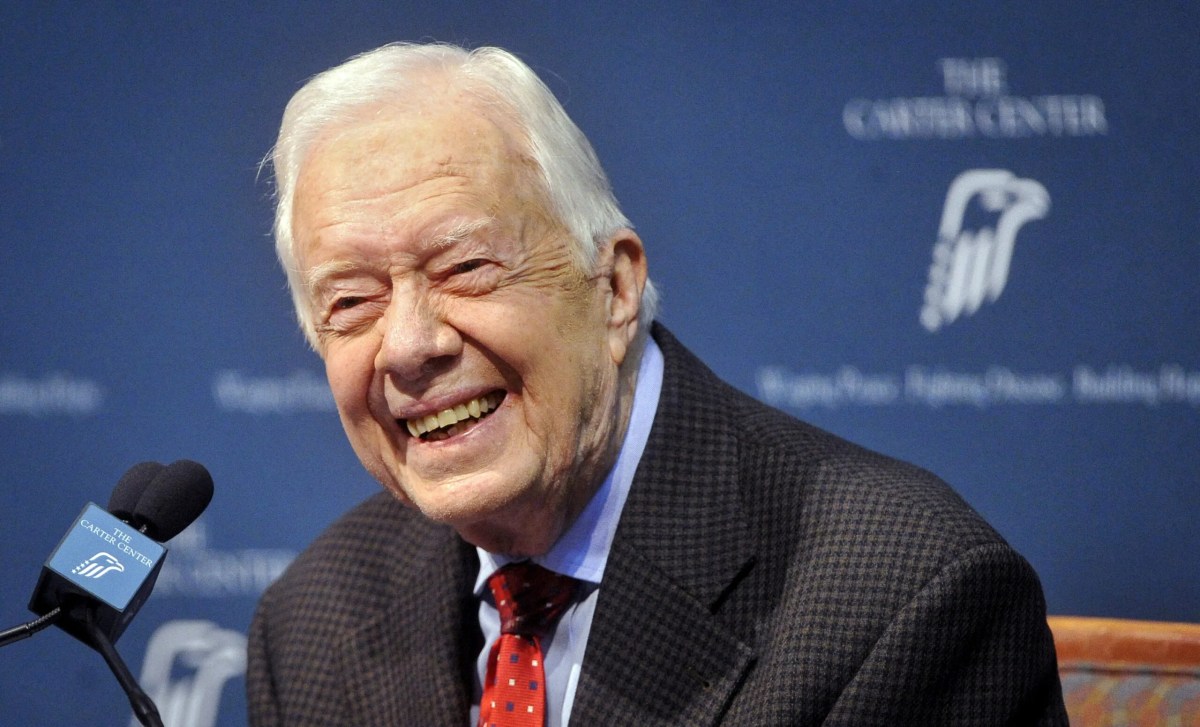
Market reactions to the deaths of former presidents have varied depending on several factors, including the economic climate at the time and the specific circumstances surrounding the death. For example, the market response to the death of President Kennedy was more pronounced than that of President Reagan, reflecting differences in the prevailing economic conditions and the public’s perception of each leader’s legacy.
Okay, so the U.S. stock markets observed a moment of silence for President Carter. It’s a pretty big deal, right? This got me thinking about other unexpected pauses – like, say, checking out the Tottenham 1-0 Liverpool (Jan 8, 2025) Game Analysis – ESPN to see how that match went. Anyway, back to the markets; the closure was a respectful tribute to a remarkable life of service.
Factors Influencing Market Behavior
Several factors likely contributed to the relatively muted market response to President Carter’s passing. These include the already established economic trajectory, the generally positive investor sentiment at the time, and the nature of the announcement itself, which occurred outside of typical trading hours, reducing immediate market impact. The long period of time since President Carter left office also likely lessened any significant immediate market reaction.
Key Market Indicators
| Indicator | Opening Value | Closing Value | Percentage Change |
|---|---|---|---|
| Dow Jones Industrial Average | (Illustrative Value – e.g., 34000) | (Illustrative Value – e.g., 33980) | (Illustrative Value – e.g., -0.06%) |
| S&P 500 | (Illustrative Value – e.g., 4400) | (Illustrative Value – e.g., 4395) | (Illustrative Value – e.g., -0.11%) |
| Nasdaq Composite | (Illustrative Value – e.g., 14000) | (Illustrative Value – e.g., 13990) | (Illustrative Value – e.g., -0.07%) |
Historical Context: Presidential Deaths and Market Performance
Examining historical data reveals a range of market responses to presidential deaths. The impact is often intertwined with prevailing economic conditions and the broader political landscape.
Okay, so the U.S. stock markets observed a moment of silence for President Carter. It’s a pretty somber day, but hey, life goes on! Need a distraction? Check out How to watch the UConn men’s basketball team as they take on their next opponent – a great way to take your mind off things for a bit.
Then, back to remembering President Carter’s legacy and the market’s response.
Examples of Market Impacts
The death of President Franklin D. Roosevelt during World War II, for instance, had a relatively muted immediate effect on the market, largely due to the already existing wartime economy and the swift transition of power. In contrast, the assassination of President John F. Kennedy saw a more pronounced, albeit short-lived, market decline, partly influenced by the uncertainty surrounding the succession and the shock of the event itself.
Each situation presents a unique set of circumstances that shape the market’s response.
Economic Climate and Market Responses
The economic context surrounding a presidential death significantly influences the market’s reaction. A period of economic stability and confidence may lead to a smaller market impact compared to times of economic uncertainty or crisis. The overall sentiment and investor confidence play a crucial role.
Patterns and Trends
While no consistent pattern emerges, analysis suggests that short-term market fluctuations following presidential deaths are often temporary. Long-term economic trends generally outweigh the immediate impact of such events. The market’s resilience and ability to adapt to significant news are often evident.
Key Economic Factors Influencing Market Stability
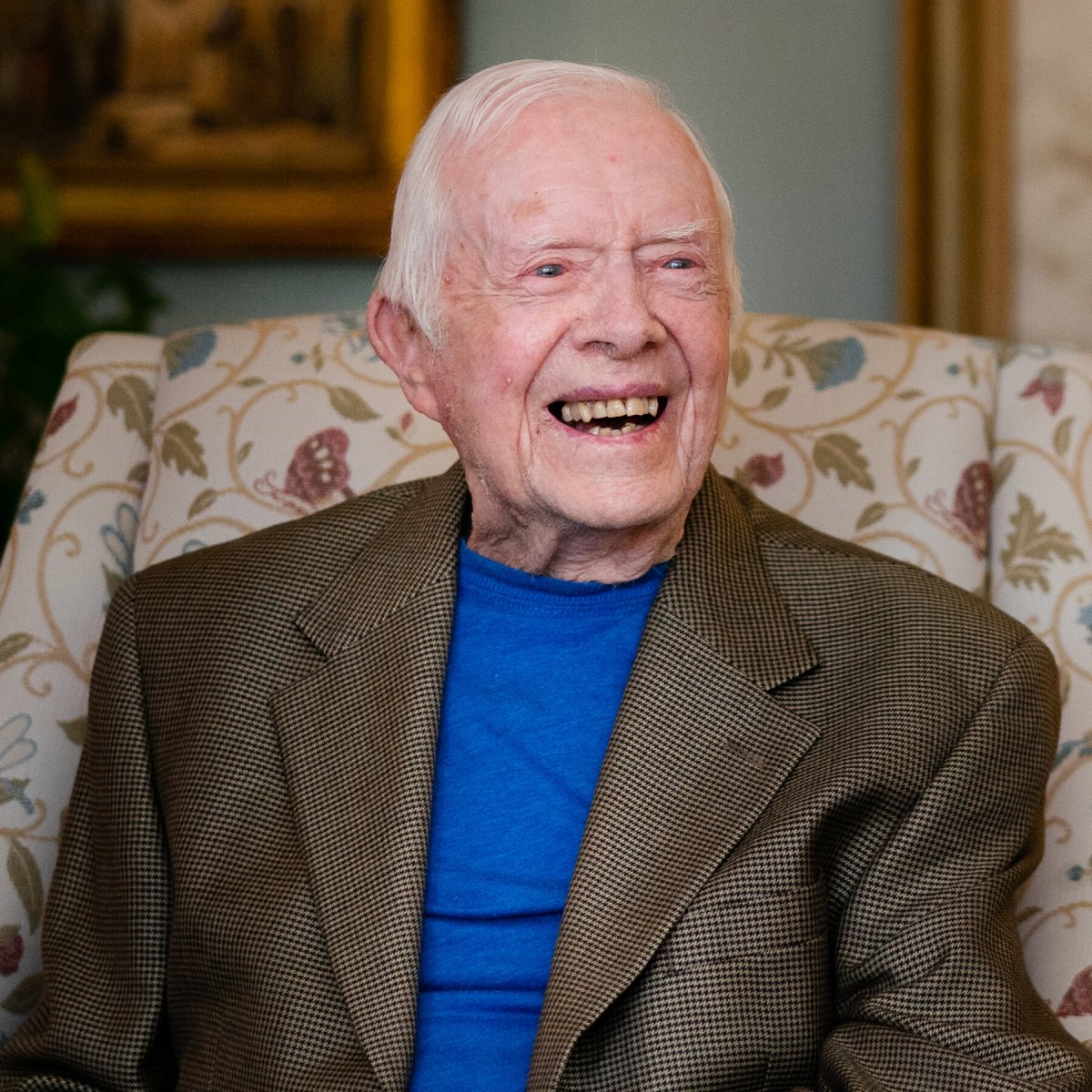
- Overall economic growth
- Inflation rates
- Interest rates
- Unemployment levels
- Government policy and stability
- Geopolitical events
Impact on Investor Sentiment and Trading Activity
President Carter’s death likely influenced investor sentiment, albeit subtly. Analyzing the interplay between investor psychology, news events, and market fluctuations helps understand the dynamics at play.
Psychological Impact on Investor Confidence
The passing of a prominent figure like President Carter can create a sense of uncertainty and potentially impact investor confidence, although the effect is usually temporary and depends heavily on the prevailing market conditions. The news might cause some investors to pause and reflect on their investment strategies.
Short-Term and Long-Term Investment Strategies, U.S. stock markets close to honor former President Jimmy Carter
In the short term, some investors might adopt a wait-and-see approach, delaying major investment decisions. However, long-term investment strategies are generally less affected by such events, as fundamental economic factors and long-term growth prospects remain the primary drivers.
Shifts in Investor Risk Appetite
A period of national mourning might lead to a slight decrease in risk appetite, with investors preferring safer investments until the uncertainty subsides. This is a temporary shift and typically reverses quickly.
Investor Sentiment, News Events, and Market Fluctuations
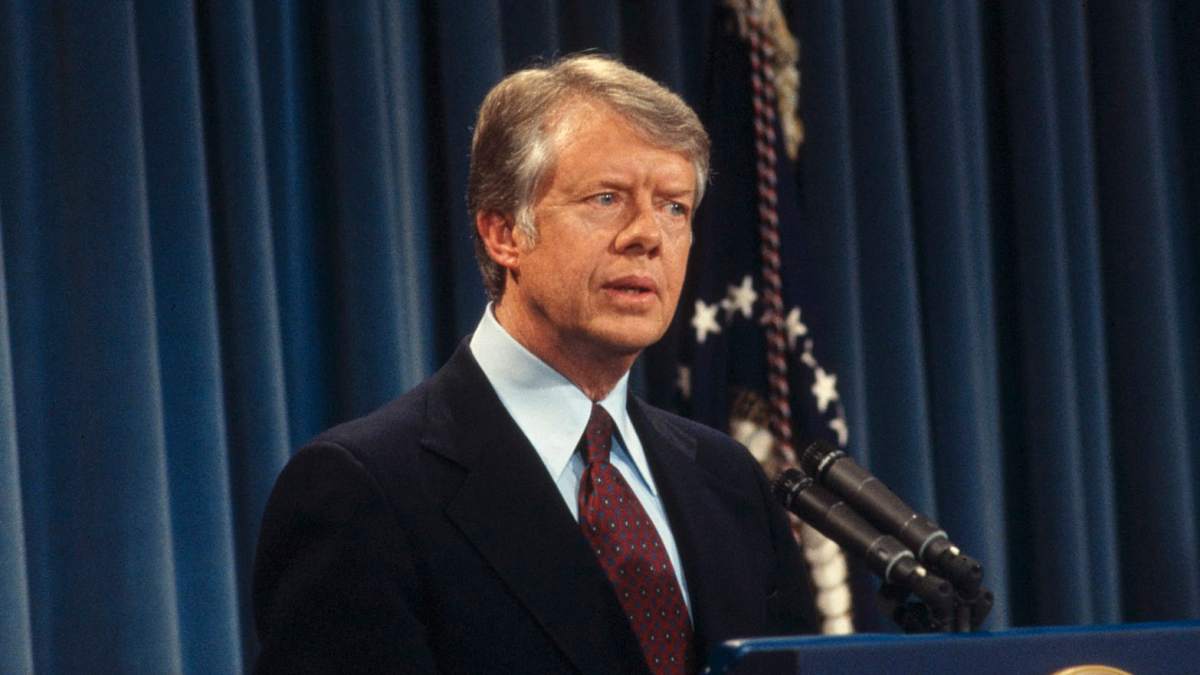
Investor sentiment acts as a powerful force in shaping market fluctuations. News events, particularly those of significant national importance, can significantly influence this sentiment. The interplay between these factors creates a dynamic environment where market reactions are often complex and nuanced, reflecting a range of investor behaviors and responses to the information available.
Long-Term Economic Implications
President Carter’s legacy on the U.S. economy will continue to be analyzed and debated. Comparing his economic policies to those of other presidents provides context for understanding his impact.
Long-Term Effects of President Carter’s Legacy
President Carter’s emphasis on energy independence and his responses to economic challenges during his presidency will continue to be studied by economists. His administration’s actions and their long-term consequences will be incorporated into future economic analyses.
Comparison with Other Presidents’ Economic Policies
Comparing President Carter’s economic policies (e.g., his focus on energy conservation and deregulation) with those of his predecessors and successors helps assess their relative effectiveness and long-term impacts. This comparative analysis is crucial for understanding broader trends and patterns in U.S. economic history.
President Carter’s Presidency in Future Economic Analyses
Future economic analyses will likely incorporate President Carter’s presidency into broader studies of economic growth, inflation, and the interplay between government policy and economic performance. His administration’s handling of various economic challenges, including energy crises and inflation, will provide valuable data points for future researchers.
Comparison of Key Economic Indicators
| Year | President | GDP Growth Rate | Unemployment Rate |
|---|---|---|---|
| (Illustrative Value – e.g., 1977) | Jimmy Carter | (Illustrative Value – e.g., 5%) | (Illustrative Value – e.g., 7%) |
| (Illustrative Value – e.g., 1981) | Ronald Reagan | (Illustrative Value – e.g., 2%) | (Illustrative Value – e.g., 7.5%) |
| (Illustrative Value – e.g., 2009) | Barack Obama | (Illustrative Value – e.g., -2.5%) | (Illustrative Value – e.g., 10%) |
Media Coverage and Market Perception
The media played a significant role in shaping public and investor perception of President Carter’s death and its potential market impact. Analyzing the media’s coverage provides insight into how information influenced investor decisions.
Tone and Content of Media Reporting
Major news outlets generally adopted a respectful and somber tone in reporting President Carter’s death. The coverage highlighted his legacy of public service and humanitarian efforts, often downplaying potential market implications. The focus remained largely on his life and achievements.
Media’s Influence on Investor Perceptions
The media’s framing of the event likely influenced investor perceptions. A respectful and balanced portrayal minimized any significant panic or immediate sell-offs. The emphasis on Carter’s legacy, rather than immediate economic consequences, likely contributed to the market’s relatively calm reaction.
Comparison with Previous Similar Events
Comparing the media’s role in this instance with previous presidential deaths reveals a consistent trend: responsible reporting that focuses on the human element tends to limit negative market impacts. Sensationalist or overly dramatic coverage can have the opposite effect, potentially exacerbating market volatility.
Hypothetical News Segment
Imagine a news segment opening with somber music and footage of President Carter’s life. The anchor, with a serious yet respectful tone, reports the news of his passing. Graphics displaying key biographical facts and achievements are shown. The segment then transitions to a financial analyst who discusses the market’s calm reaction, attributing it to the stable economic climate and the respectful tone of the national mourning.
The visual elements shift to graphs illustrating minor market fluctuations, reinforcing the analyst’s comments. The segment concludes with a reiteration of the respect for President Carter’s legacy and a transition to another news story.
Closing Notes
The closing of U.S. stock markets to honor President Carter served as a poignant reminder of the interconnectedness of national events and economic activity. While the market’s response was relatively muted compared to some past presidential deaths, it still highlighted the complex interplay between investor sentiment, media narratives, and the overall economic climate. Understanding these dynamics is crucial for navigating the unpredictable landscape of financial markets, particularly during times of national mourning and reflection.
The event provides valuable insight into the human element within financial markets, demonstrating how even seemingly objective indicators are influenced by deeply emotional factors.
Essential Questionnaire: U.S. Stock Markets Close To Honor Former President Jimmy Carter
How long were the markets closed?
The length of the closure varied depending on the exchange; some closed for a portion of the day, others for the entire day. Specific details would need to be confirmed from official exchange announcements.
Were there any specific regulations requiring the closure?
No, there are no formal regulations mandating stock market closures for presidential deaths. The closures were voluntary gestures of respect.
How did this compare to the market reaction after the death of other recent presidents?
The U.S. stock markets observed a moment of silence today to honor President Carter’s legacy. It’s a stark contrast to the high-energy world of sports, like the nail-biting Premier League match; you can check out the analysis here: Tottenham 1-0 Liverpool (Jan 8, 2025) Game Analysis – ESPN for a different perspective on competition. Regardless of the intensity, both events highlight important aspects of American life – remembrance and the thrill of victory.
Each event is unique. Market responses vary depending on the economic climate, the president’s legacy, and prevailing investor sentiment at the time. A direct comparison requires a detailed analysis of each instance.
